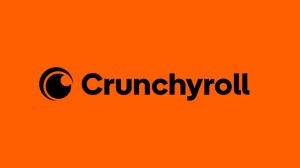Dungeons & Dragons has issued a formal apology for its recent handling of proposed changes to the OGL and has stated its plans for engaging the community while working on a new OGL. Earlier today, Kyle Brink, the executive producer of D&D, posted an apology on D&D Beyond in which he apologized on behalf of Wizards of the Coast for their rollout of a controversial new Open Gaming License (OGL) that would have made a major impact on Dungeons & Dragons third-party content. “I am here today to talk about a path forward,” Brink wrote. “First, though, let me start with an apology. We are sorry. We got it wrong.”
Videos by ComicBook.com
This marks the first apology by Wizards of the Coast for a controversy that broke out nearly two weeks ago, when Roll for Combat and io9 revealed details about a new OGL that included a harsh royalty structure, a de-authorization of previous OGLs despite numerous communications stating that the previous OGL could not be revoked, and license back language that provided Wizards with a royalty-free license to use content produced under the new OGL.
“Our language and requirements in the draft OGL were disruptive to creators and not in support of our core goals of protecting and cultivating an inclusive play environment and limiting the OGL to TTRPGs,” Brink wrote. “Then we compounded things by being silent for too long. We hurt fans and creators, when more frequent and clear communications could have prevented so much of this.”
In an effort to engage the community on the rollout of a new OGL, Brink said that they would be collecting public feedback on future drafts via surveys, similar to how the D&D design team collects feedback on playtest material. “We’ll listen to you, and then we will share with you what we’ve heard, much like we do in our Unearthed Arcana and One D&D playtests,” Brink wrote. “This will be a robust conversation before we release any future version of the OGL.” Wizards of the Coast previously provided what they described as drafts to third-party creators under NDA along with what was reported to be a contract binding them to said draft. In exchange, creators were reportedly offered a 15% royalty fee instead of the 25% royalty fee planned under the new OGL. It is unclear how many creators signed the reported OGL draft, nor is it clear whether they’ll still be held to the terms of what Wizards claimed was draft language.
A public draft of the new OGL will be released on Friday, followed by a two-week survey period to solicit feedback from the community. Brink also noted that the new OGL would not affect several areas, including video content, VTT content, DM’s Guild content, material published under the current OGL 1.0a, or contracted services. Additionally, Brink reiterated that the new OGL would not contain any royalty or financial reporting requirements or license-back requirements. It is unclear whether the new OGL will attempt to “de-authorize” the current OGL, thus preventing new work from being published under it.









